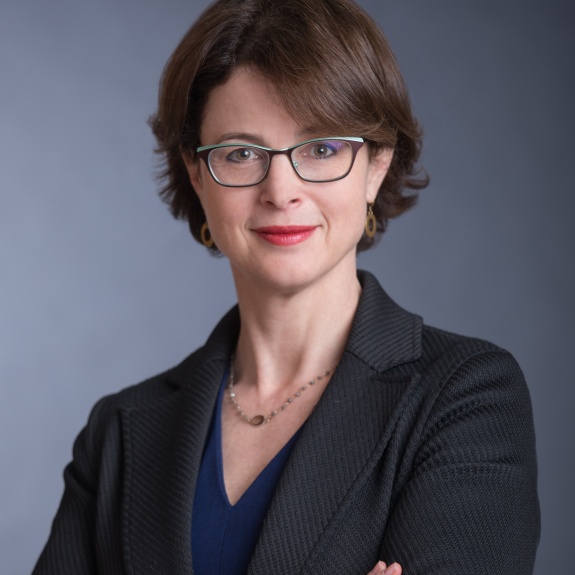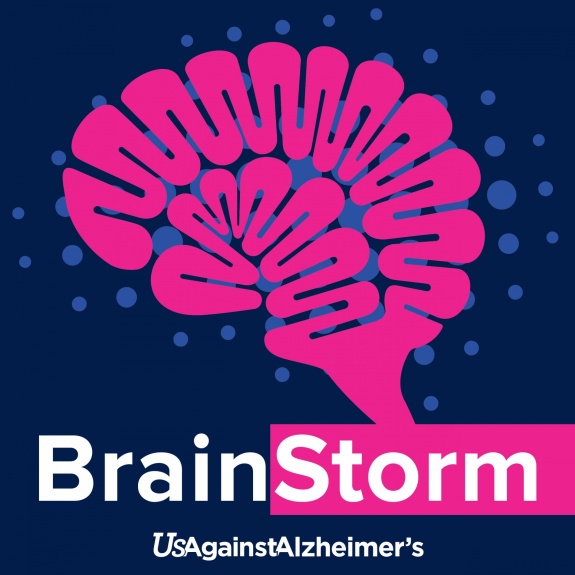Subscribe on your favorite player
Listen on Apple Podcasts Listen on Spotify Listen on Stitcher Listen on Google PodcastsBuilding a Brain Health Care System - Anne Tumlinson

About This Episode
With this episode, we’ve made some exciting changes to Alzheimer’s Talks. Joining us as our host is former journalist, bestselling author and Alzheimer’s caregiver Meryl Comer. She is Co-Founder of WomenAgainstAlzheimer’s, Chair of the Global Alliance on Women’s Brain Health and an UsAgainstAlzheimer’s Founding Board Member.
We’ll now bring you Alzheimer’s news, as well as our hallmark conversations with researchers and other leaders. You can still listen by phone, but if you watch online or on Facebook, you’ll be able to see Meryl and our guests, plus short videos and graphics to enrich the discussion.
Press the "Play" button under the image at left to hear the full session, or watch the webcast on Facebook.
News updates included:
- A new Medicare Advantage rule in 2020 that will help encourage diagnosis of dementia
- Reintroduction in Congress of the CHANGE Act—fostering early detection, diagnosis and access to treatment—and the Younger-Onset Alzheimer’s Act, to ensure access to programs and services
- A call by our Chairman and Co-Founder George Vradenburg for an annual brain health check-up for all ages—on Facebook or Twitter, you can take our pledge to ask your doctor about brain health
- A $30 million donation to the Alzheimer’s Drug Discovery Foundation by the Gates Foundation and Jeff and Mackenzie Bezos of Amazon, to expand early diagnosis
- Our 30-day Brain Health Challenge—you can still sign up at BeBrainPowerful.org
Our Conversation with Anne Tumlinson
In this Alzheimer’s Talk, we spoke with healthcare and aging expert Anne Tumlinson, who is also the founder of Daughterhood, a community of caregivers helping others navigate health and elder care. Having gathered input from 40+ expert contributors, she authored recommendations for building a system of brain health care, including a yearly brain health check-up. The resulting paper, released by UsAgainstAlzheimer’s Brain Health Partnership, spells out this vision and what’s needed to get there.
As Anne and Meryl discussed, to help our brain span match our lifespan, our society needs a focus on brain health. Increasingly, research shows ways to prevent or reverse mild cognitive impairment and improve brain health. If we each do more to keep our brain healthy, with our doctor’s help, we will be better prepared individually and collectively to fend off cognitive decline.
Our health care system today is not optimized for brain care, but together we can develop a system that protects and enhances brain function. An optimal brain health system will foster good cognitive function across the lifespan.
Meryl said, “One thing that is striking to me is that we are not ready for success. We worry about failures in Alzheimer’s research, but even if we had a disease-modifying treatment, the assessment and diagnostic process is projected to be a two-year wait. That’s too long by any measure.”
Anne Tumlinson agreed. “We can’t address what we don’t know about. Even if we have a fantastic treatment, if we have no way to find people with the disease and help them early, then it’s all for nothing. Building a system of brain health care is just as important as having that disease-modifying drug. We can’t do one without the other.”
Anne described the recommendations in the UsAgainstAlzheimer’s paper:
- For healthcare professionals, we must highlight and create tools and solutions to increase their confidence about what they can offer for brain health so that they more often raise it with patients.
- For consumers/patients, we need to help them advocate for their brain health by asking their doctor about it. Consumer-driven movements for HIV/AIDS, breast cancer and other conditions have changed our healthcare system from the bottom up. We can do the same for brain health.
- For the business of health care, we need to ensure that the business goals align with those for brain health care. Our current system focuses on what happens today or this year, not on things that will make a difference years from now. We need ways to incentivize that and to make a business case for brain health, with the organizations that insure our health and those that care for our health.
Few physicians bring up brain health with their patients, in part because doctors think there are no real solutions to offer. However, an annual brain health exam is an important step doctors can suggest, along with lifestyle changes proven to protect and boost cognitive function. For instance, managing high blood pressure and other heart disease risks, through behavior changes and medications, is one of many heart-healthy approaches that also benefit the brain.
As Meryl said, “We’ve taken our brains for granted and assumed our brain span would match our lifespan. Unfortunately, that is not the case.”
Anne noted that brain health is not just an issue for old age. We each have opportunities to work on our brain health beginning early in life, particularly through sleep, diet and exercise. Even for those who already have dementia, we can help them improve their brain function and their engagement with their surroundings.
An ideal system of brain health care would prioritize prevention of disease and addressing early warning signs that could mean a greater risk for dementia later on. We should detect and diagnose cognitive impairment as early as possible. Anne said, “This is where we fall down the most—we don’t have a healthy attitude toward opportunities to delay cognitive impairment. Most people don’t want to know, and providers don’t want to talk about it.”
Anne described a “push-pull” that needs to happen. We must help physicians see the benefits of raising brain health with patients, and we must help consumers initiate conversations with their physicians. She said, “It’s a two-way street.”
If we can create an optimal system of brain health care, to increase brain span in the population, we may delay Alzheimer’s or dementia—or reduce the impact and severity of it. But we all have to participate: doctors, patients, families and our health care system overall.
For more information on these issues, you can read our full report, A Call for Action: Creating an Optimal System of Brain Health Care in the United States. You can also check out our Be Brain Powerful campaign and take the 30-Day Brain Health Challenge.
